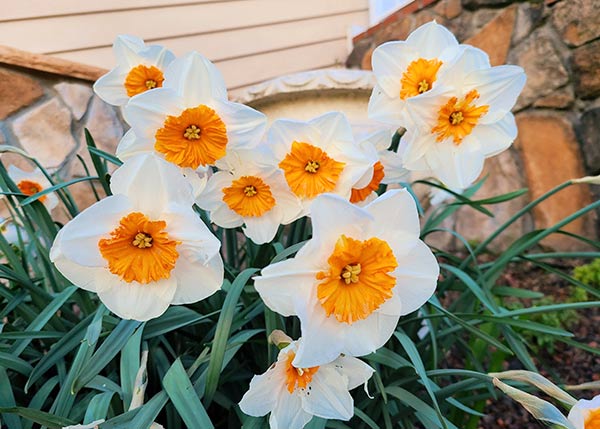

 Spring has sprung, and with many of us spending more time at home these days, it’s the perfect time to start your garden. It can also be a great activity for the kids to get involved as well as a chance for everyone to spend more time outdoors as a family. Here is some gardening plant-food for thought!
Spring has sprung, and with many of us spending more time at home these days, it’s the perfect time to start your garden. It can also be a great activity for the kids to get involved as well as a chance for everyone to spend more time outdoors as a family. Here is some gardening plant-food for thought!
Starting Your Outdoor Garden or Raised Bed
1. Come Up With Your Game Plan
Before starting a garden from scratch, you’ll need to first pick a place to put your garden. Sounds simple, right? But some good thought and preparation here can go a long way. For example, if you want to plant raspberries, tomatoes, or dahlias, these plants love a lot of sunlight. You’ll want to select the sunniest spot in your yard for these plants. Plants like Lily of the Valley, Bleeding Hearts, and Day Lilies prefer a shady spot in your garden and will shrivel up if they get exposed to too much sun.
2. Prep Your Soil
Once you’ve figured out what you’d like to plant and where you’d like to plant it, the next step is to make sure your soil is ready. First, do a thorough weeding of your garden area. Next, figure out what kind of soil your plants like. Soil type varies on a spectrum between acidic and alkaline depending on its PH levels. Our advice here is to do some online research and figure out what your plants like. That will help guide your decisions about what soil to buy. You’ll then need to turn your soil (basically mix it all up, and pat it back down again) and make sure you have at least 12 inches of soil depth.
Pro Tip: If you’re home-brewing your coffee, keep the extra coffee grounds and use them in your yard for acidic-loving plants like raspberries and blueberries
3. Get Planting
When is the perfect time to plant seeds? On average, our last frost here in the greater Seattle area is around March 24th – making now the perfect time to start planting! However, different crops require different planting times, so be sure to check on the back of your seed packet or online for that specific plant.
Choose your plants wisely. Only have a small garden to work with? Pick seeds like carrots, parsley, beets, and radishes. Other vegetables, like cauliflower and squash, need to be planted several feet apart.
Here’s a list of PNW-friendly plants to consider! Looking for seeds? You can find Ed Hume seeds at your local Bartell’s.
PNW-friendly fruits and vegetables: Beans, beets, blueberries, broccoli, cabbage, cauliflower, carrots, cucumbers, eggplant, garlic, lettuce, onions, peas, potatoes, squash, strawberries, and tomatoes.
PNW-friendly flowers and plants: Blanket flowers, blue columbines, cardinal flowers, dahlias, daisies, geraniums, lupine, marigold, miniature hollyhocks, peonies, primrose, sunflowers, sword ferns, and tufted hairgrass.
4. Routinely Water
This is another thing that sounds simple, but you’ll want to do a little research here, too, to determine what your plants like best. While planting your plants or seeds, you’ll want to give your soil and newly-planted item a good water. Generally, it’s a good idea to water these plants every few days. Here’s where nature can lend a hand though! If it’s a rainy day, as many PNW spring days are, you can skip your watering. Keep a closer eye out for a string of sunny warm days. That’s when you’ll want to give your plants some extra water. Plants like to be watered in the morning or the evening (not at the middle part of the day when the sun is at its hottest).
Want to take gardening to the next level?
For those that have an extra green thumb, try making your own compost. Vegetable peels, coffee grinds, and grass clippings all make for a great source for compost. Adding compost reduces the need for watering by keeping the soil more absorbent and adds nutrients back into your garden.
Your neighborhood Bartell Drugs sells an assortment of gardening equipment such as watering cans, spades, garden gloves, soil, pots, and a wide variety of flower and vegetable seeds.
What gardening tips do you have for our readers?
Happy gardening!




